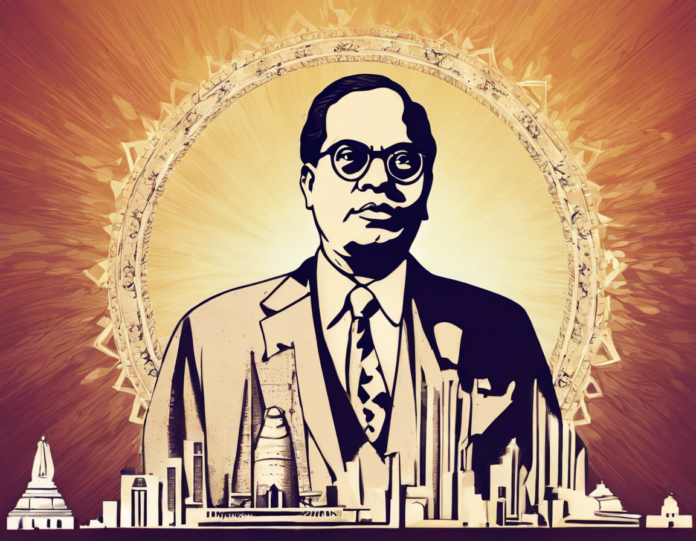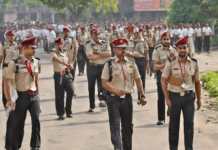Dr. Bhimrao Ramji Ambedkar, popularly known as Babasaheb Ambedkar, was a visionary leader, social reformer, and the architect of the Indian Constitution. His contributions to the upliftment of the oppressed and marginalized communities in India are unparalleled. Each year on 14th April, his birth anniversary is commemorated as Ambedkar Jayanti to honor his legacy and commemorate his invaluable contributions. This day serves as a reminder of his tireless efforts towards social justice, equality, and the empowerment of the downtrodden.
Dr. B.R. Ambedkar: The Icon of Social Justice
Dr. B.R. Ambedkar was born on 14th April 1891 in the town of Mhow in Madhya Pradesh, India. Despite facing extreme social discrimination and obstacles due to his caste, he rose to become one of the most influential leaders in Indian history. Dr. Ambedkar’s life and work are a testament to his unwavering commitment to social justice, equality, and liberty for all individuals. Here are some key aspects of his life and journey:
Early Life and Education
- Ambedkar belonged to the Dalit community, traditionally considered “untouchables” in the Indian caste system.
- Despite facing discrimination and hardships, he excelled in his studies and went on to pursue higher education in India and abroad.
- He obtained a doctorate in economics from the University of London and later acquired multiple postgraduate degrees.
Fight Against Caste Discrimination
- Throughout his life, Ambedkar vehemently fought against the oppressive caste system that perpetuated discrimination and inequality in Indian society.
- He advocated for the rights and dignity of Dalits and other marginalized communities, working tirelessly to eliminate social evils such as untouchability.
- Ambedkar’s efforts towards social reform led to significant legislative changes and a shift in societal attitudes towards caste-based discrimination.
Architect of Indian Constitution
- Dr. B.R. Ambedkar played a pivotal role in drafting the Constitution of India, which came into effect on 26th January 1950.
- As the chairman of the Constitution Drafting Committee, he ensured that the constitution enshrined fundamental rights, equality before the law, and social justice for all citizens.
- His vision laid the foundation for a democratic and inclusive society, upholding the principles of liberty, equality, and fraternity.
Celebrating Ambedkar Jayanti
Ambedkar Jayanti is observed with great reverence across India and in various parts of the world. The day is marked by various events and activities that celebrate the life, teachings, and legacy of Dr. B.R. Ambedkar. Here are some common ways in which Ambedkar Jayanti is commemorated:
Lectures and Seminars
- Educational institutions, social organizations, and government bodies conduct lectures, seminars, and discussions on the life and work of Dr. B.R. Ambedkar.
- Scholars, activists, and leaders share insights on his contributions to social justice, equality, and constitutional rights.
Cultural Programs and Art Exhibitions
- Cultural programs showcasing the rich heritage of Dalit literature, art, and music are organized to honor Dr. Ambedkar’s cultural legacy.
- Art exhibitions featuring his portraits, quotes, and memorabilia attract art enthusiasts and admirers of his work.
Social Welfare Activities
- Many organizations and individuals engage in community service, blood donation drives, and charitable initiatives as a tribute to Dr. Ambedkar’s commitment to social welfare.
- Free health camps, educational programs, and skill development workshops are organized to empower underprivileged sections of society.
Floral Tributes and Processions
- People pay homage to Dr. B.R. Ambedkar by offering floral tributes at his statues and memorials across the country.
- Processions, rallies, and prabhat pheris (early morning marches) are organized to commemorate his vision of social equality and justice.
FAQs: Celebrating Ambedkar Jayanti
- Why is Ambedkar Jayanti celebrated on 14th April every year?
-
Ambedkar Jayanti is celebrated on 14th April to mark the birth anniversary of Dr. B.R. Ambedkar, a visionary leader and social reformer.
-
What are some key principles that Dr. Ambedkar stood for?
-
Dr. Ambedkar stood for principles of social justice, equality, liberty, fraternity, and the upliftment of marginalized communities.
-
How can individuals contribute to the legacy of Dr. B.R. Ambedkar?
-
Individuals can contribute by promoting social justice, fighting against discrimination, advocating for equality, and upholding the values enshrined in the Constitution.
-
What are some recommended readings or resources to learn more about Dr. B.R. Ambedkar?
-
Books like “Annihilation of Caste,” “The Essential Writings of B.R. Ambedkar,” and “Dr. Ambedkar and Untouchability” provide valuable insights into his life and work.
-
Are there any international events or commemorations held in honor of Dr. B.R. Ambedkar?
- Yes, Ambedkar Jayanti is celebrated globally in countries with significant Indian diaspora populations, with events, seminars, and cultural programs being organized.
In conclusion, Ambedkar Jayanti is not just a day of remembrance but a call to action to uphold the values of equality, justice, and liberty that Dr. B.R. Ambedkar stood for. It serves as a reminder of the enduring impact of his teachings and the need to continue working towards a more inclusive and egalitarian society. By celebrating Ambedkar Jayanti, we pay tribute to a remarkable leader whose legacy inspires generations to strive for a better and more just world.
















